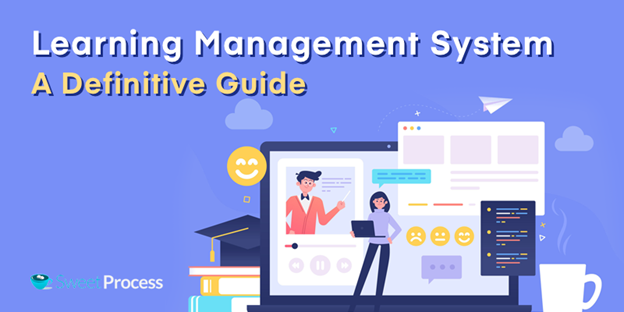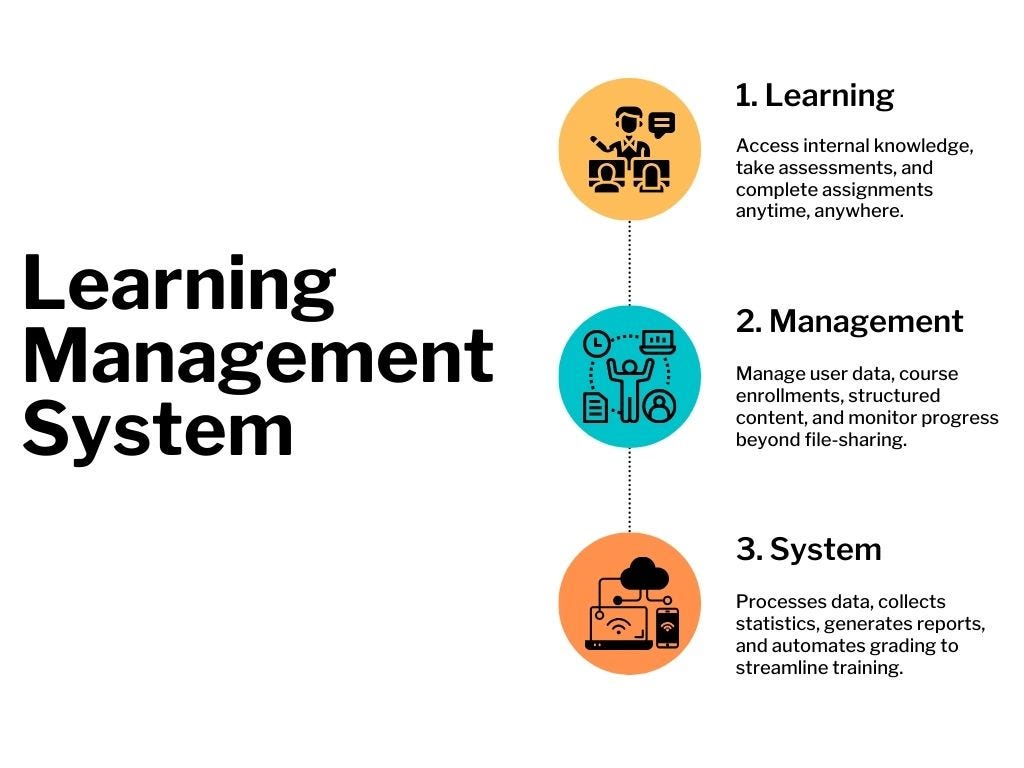Learning Management System Singapore: Key Considerations When Selecting an LMS
Learning Management System Singapore: Key Considerations When Selecting an LMS
Blog Article
Picking the very best Learning Administration System for Your Company
Choosing the ideal Learning Monitoring System (LMS) for your company is a diverse decision that needs careful consideration of different elements. From defining exact knowing goals that reverberate with your calculated vision to evaluating individual experience, each variable plays an essential function in the overall performance of the system. Additionally, understanding combination capacities and making certain scalability for future requirements can not be ignored. As organizations strive for efficiency and development, the choice of an LMS comes to be significantly considerable. What are the crucial considerations that can influence your decision-making procedure?
Specify Your Understanding Purposes
Defining clear knowing objectives is essential for the successful execution of a Learning Monitoring System (LMS) These objectives work as a roadmap, guiding the growth of content, evaluations, and overall instructional techniques within the LMS. By developing details, measurable, attainable, appropriate, and time-bound (WISE) goals, organizations can make certain that the understanding experiences are aligned with their critical purposes and learner requirements.
Effective learning objectives should encapsulate what learners are expected to know or have the ability to do upon completion of a course or training program. This clearness not just aids in content creation however also assists in the analysis of student development and the total effectiveness of the LMS. LMS SG. Well-defined goals allow stakeholders to assess whether the picked LMS functions and functionalities align with their educational goals.
Assess User Experience
Once finding out purposes have actually been established, examining user experience becomes an essential next action in selecting a suitable Knowing Administration System (LMS) User experience encompasses the general fulfillment and ease with which students engage with the system. A well-designed LMS ought to help with intuitive navigating, guaranteeing that individuals can find courses, products, and support effortlessly.
To evaluate individual experience, take into consideration conducting usability testing with a depictive sample of end-users. This can give useful understandings into exactly how learners engage with the platform. Secret factors to assess consist of the LMS's interface style, ease of access features, mobile compatibility, and the clearness of instructions supplied. Customer comments is vital; accumulating surveys or performing interviews can disclose common pain points and areas for enhancement.
Furthermore, evaluate the availability of assistance resources, such as tutorials and help centers, which can boost the user experience. The responsiveness of consumer support is also crucial; prompt help can significantly reduce irritations that individuals may experience. Eventually, picking an LMS that prioritizes user experience not only improves the learning procedure but additionally promotes greater engagement and satisfaction among learners.

Evaluate Assimilation Abilities
Recognizing the importance of smooth performance, examining assimilation capacities is vital when selecting a Knowing Monitoring System (LMS) An efficient LMS should promote interoperability with existing systems, such as Personnel Administration Solution (HRMS), Client Partnership Monitoring (CRM) platforms, and other academic devices. This integration boosts information circulation, decreases management problems, and ensures a cohesive knowing setting.
When assessing an LMS, think about the sorts of integrations provided. Look for Application Programs Interfaces (APIs), Single Sign-On (SSO) abilities, and pre-built connectors that simplify integration processes. Furthermore, confirm the LMS's capacity to integrate with third-party devices, such as content libraries or analysis systems, which can considerably enhance the understanding experience.

Consider Scalability and Versatility
As organizations develop, the capability of an Understanding Administration System (LMS) to scale and adjust ends up being progressively important. More Help A scalable LMS can accommodate development in user numbers, program offerings, and material without compromising efficiency or user experience. As companies expand, whether through raised workers, new areas, or varied training demands, the LMS should flawlessly expand along with these adjustments.
Adaptability is equally vital; an effective LMS must sustain different finding out modalities, such as online, mixed, and mobile learning. This flexibility permits organizations to react promptly to arising trends in training and growth, making sure that they can provide interesting and relevant discovering experiences - LMS Singapore. Furthermore, the system needs to offer personalized attributes, enabling companies to tailor the LMS to their certain requirements and branding
In addition, a flexible LMS needs to integrate quickly with existing platforms and devices, promoting a cohesive learning community. Hence, when choosing an LMS, it is critical to assess not only its current abilities yet also its possible to adapt and grow abreast with the organization's tactical goals and developing discovering requirements. This foresight can considerably boost the long-term stability of the picked LMS.
Testimonial Costs and Budgeting
When reviewing an Understanding Monitoring System (LMS), assessing prices and budgeting is necessary to make certain that the investment aligns with the organization's economic abilities and critical objectives. Organizations should begin by determining the overall price of possession, which includes licensing costs, execution prices, upkeep, and any added expenditures such as training and technical assistance.
It is important to compare various LMS options, as rates designs can differ considerably among vendors. Some systems might supply a subscription-based version, while others may bill a single cost. Organizations must additionally consider the scalability of the LMS; as they grow, the expense structure may change, influencing long-term budgeting.

Verdict
Selecting an ideal Discovering Monitoring System (LMS) is necessary for accomplishing business knowing objectives. A thorough evaluation of individual experience, assimilation capabilities, scalability, and monetary factors to consider makes certain that the chosen LMS straightens with dig this tactical goals and learner needs. By systematically resolving these factors, organizations can boost finding out end results, help with seamless operations, and support future growth. Ultimately, the right LMS functions as a critical tool in fostering an effective learning setting and driving business success.
Picking the ideal Knowing Management System (LMS) for your company is a diverse choice that needs cautious factor to consider of different elements.Specifying clear knowing purposes is necessary for the successful execution of a Discovering Management System (LMS)Once finding out goals have actually been established, reviewing individual experience becomes a crucial next step in picking a proper Learning Administration System (LMS)As companies develop, the capacity of a Knowing Monitoring System (LMS) to scale have a peek at this website and adjust comes to be significantly important.Selecting an appropriate Learning Management System (LMS) is necessary for achieving organizational knowing goals.
Report this page